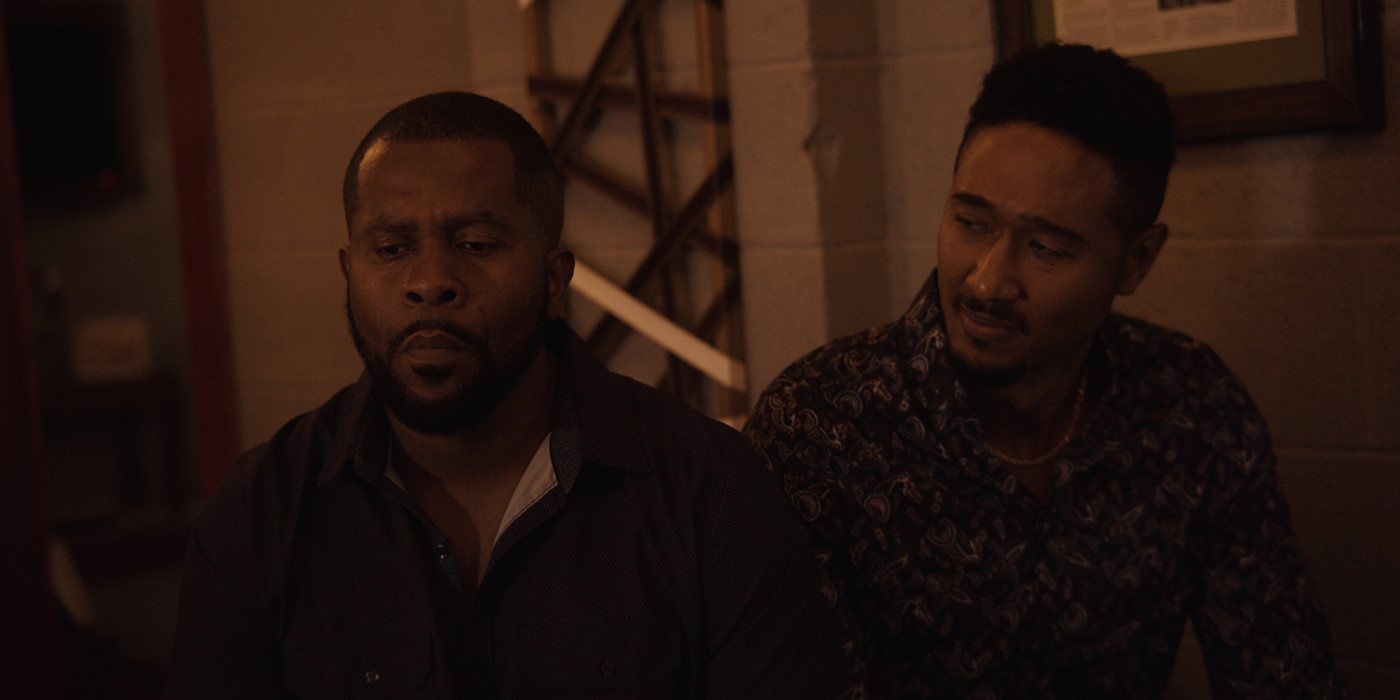Betray: Thirst is a film that lacks direction. Neither a courtroom thriller nor character-driven melodrama, it occupies an awkward grey area. Written and directed by Jason Lockridge, and starring Kenon Walker as Jamal Wiggins, a successful lawyer. Betray: Thirst spends a long time setting up the betrayal part of this film, before addressing any thirst elements. In short, a lack of affection at home leads Jamal to cross ethical boundaries and compromise his professional integrity.
For better or worse Betray: Thirst is populated by stereotypes that do nothing to elevate the material. It feels confined by genre conventions and the performances reflect those limitations. Both Jamal and Darren are lacking emotionally substance, which comes down to a script that gives them almost nothing to work with. Darren is the playboy element of their legal practice while Jamal feels trapped in his marriage. The arrival of Bre Hassan’s Jada signposts pivotal plot twists from the moment she steps through the door. Her husband needs help to get compensation for his injuries, and the attraction between Jada and Jamal is obvious.
For comparison purposes, audiences need to look at the Steven Soderbergh film Sex, Lies, and Videotape. Not only does it address the idea of infidelity and betrayal in more sophisticated ways but dramatizes the impact of those actions. Betray: Thirst lacks the complexity coming through these characters, making it seem less ambitious. The fact that Betray: Thirst highlights local council issues, and attitudes towards disability within the narrative is to be applauded. However, these social commentary sub-plots get lost alongside other dramatic shortcomings.

Misguided Perceptions Media Group
Jada is torn between being a compassionate caregiver and someone in need of companionship. Resented by a husband who is confined to his wheelchair, their relationship is defined through frustration and recrimination. What should be coming through when Jada and Jamal first meet is all those emotions, coupled with a fragile cry for help from someone in trouble. What audiences get instead is a by the numbers infatuation, denial, and betrayal scenario that squanders potential.
Betray: Thirst also switches between genres frequently, making it feel disjointed and giving it a genuine identity crisis. Audiences will also be frustrated by the fact that there is a good film in here somewhere. Among the thinly drawn confrontation scenes, and sultry meetings between Jada and Jamal, Betray: Thirst has potential. It has shades of Joel Schumacher’s A Time to Kill in the connection between lawyer and client. However, this element was used sparingly within that film, rather than being treated as a central relationship.
Jovan Longbridge should have expanded on his premise and made these characters more grounded. There is no doubt that Betray: Thirst improves hugely towards the end, but by that time audiences will have stopped investing. By punching up the script and going deeper into the infidelity angle, there is no doubt that this film had the potential to impress. Too much screen time is wasted laying foundations for a drama that struggles to get off the blocks. Meaning that audiences are likely to feel disappointed as Betray: Thirst fails to fulfil its ambition.
Betray: Thirst will be available on digital download from May 6.



